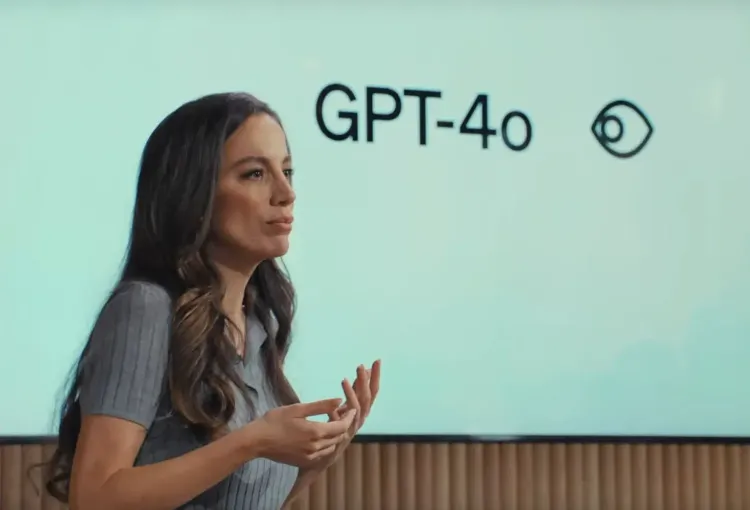The Perils of AI Voice Cloning: How BBC Presenter Liz Bonnin Fell Victim to Unauthorized Endorsements

In a world where artificial intelligence (AI) is rapidly advancing, the line between reality and deception is becoming increasingly blurred. The recent incident involving BBC presenter and environmental advocate Liz Bonnin has brought to light the alarming potential for misuse of AI voice cloning technology in the advertising industry. We examine the details of the unauthorized use of Bonnin's likeness and voice, the implications for individuals and businesses, and the potential need for regulatory measures to address the challenges posed by advanced AI technologies.
The Incident: AI-Generated Voice Cloning Deceives Insect Repellent Company
Liz Bonnin, a respected figure in the media industry known for her work on BBC programs and her environmental advocacy, recently found herself at the center of a controversy involving AI voice cloning. An advertising campaign for an insect repellent spray, run by the company Incognito, featured what appeared to be Bonnin's endorsement of the product. However, it was later revealed that the endorsement was not given by Bonnin herself but was instead created using AI-generated voice cloning technology.

The deception came to light when Bonnin's management team noticed her face being used in online advertisements without her consent. Upon further investigation, it was discovered that the CEO of Incognito, Howard Carter, had been misled by scammers who used AI to mimic Bonnin's voice and provide fake endorsements. The scammers had gone to great lengths to deceive Carter, providing convincing voice messages and contact details purportedly from Bonnin herself.
The Implications: Consent, Deception, and Violation
The unauthorized use of Liz Bonnin's likeness and voice raises significant ethical and legal concerns. At the heart of the issue is the matter of consent. Bonnin had not given permission for her voice or image to be used in the advertising campaign, and the use of AI technology to mimic her voice without her knowledge or approval is a clear violation of her rights.
Moreover, the incident highlights the potential for deception through the use of AI voice cloning. The scammers were able to convince the CEO of Incognito that he was communicating with Bonnin herself, leading to the signing of a contract and the making of a payment based on false pretenses. This type of deception can have far-reaching consequences, not only for the individuals whose voices are being cloned but also for the businesses that are being misled.
Bonnin herself has expressed the profound impact that this incident has had on her, stating that it felt like a violation. The experience has underscored the importance of vigilance when being contacted through unofficial channels and has raised questions about the need for greater protection against the misuse of AI technology.

The Broader Context: AI Voice Cloning and Its Potential for Misuse
The incident involving Liz Bonnin is not an isolated case but rather a symptom of a larger problem. As AI technology continues to advance, the potential for misuse grows exponentially. Voice cloning, in particular, has emerged as a significant concern, as it allows for the creation of highly realistic audio recordings that can be used to deceive and manipulate.
The implications of this technology extend far beyond the realm of advertising. Voice cloning can be used for a wide range of nefarious purposes, including fraud, misinformation, and even political manipulation. In an era where fake news and disinformation are already significant challenges, the ability to create convincing audio recordings of public figures could further erode trust in media and institutions.
Moreover, the use of AI voice cloning raises questions about the ownership and control of one's own voice. As the technology becomes more advanced and accessible, there is a risk that individuals could lose control over how their voices are used and represented in the public sphere. This could have significant implications for privacy, security, and personal autonomy.
The Need for Regulation: Addressing the Challenges of Advanced AI Technologies
The incident involving Liz Bonnin and the broader concerns surrounding AI voice cloning underscore the urgent need for regulatory measures to address the challenges posed by advanced AI technologies. As these technologies continue to evolve and become more sophisticated, it is essential that legal and ethical frameworks keep pace.

One key area of focus should be the development of clear guidelines and standards for the use of AI voice cloning in advertising and other commercial contexts. This could include requirements for explicit consent from individuals whose voices are being cloned, as well as restrictions on the use of the technology for deceptive or manipulative purposes.
Another important consideration is the need for greater transparency and accountability in the development and deployment of AI technologies. Companies and organizations that create and use these technologies should be required to disclose their methods and intentions, and there should be mechanisms in place to hold them accountable for any misuse or harm caused by their products.
Finally, there is a need for ongoing public education and awareness about the potential risks and implications of AI voice cloning and other advanced technologies. By fostering a greater understanding of these issues among the general public, we can help to build a more informed and engaged citizenry that is better equipped to navigate the challenges of the digital age.
Conclusion: Navigating the Future of AI Voice Cloning
The unauthorized use of Liz Bonnin's voice and likeness in an advertising campaign is a stark reminder of the potential for misuse of AI voice cloning technology. As these technologies continue to advance, it is essential that we as a society grapple with the ethical and legal implications of their use.
By developing clear guidelines and standards, promoting transparency and accountability, and fostering public education and awareness, we can work towards a future in which the benefits of AI voice cloning are realized while the risks are mitigated. It is a complex and ongoing challenge, but one that we must confront head-on if we are to navigate the rapidly evolving landscape of artificial intelligence with wisdom and foresight.
As individuals and as a society, we must remain vigilant in the face of these new technologies, working to ensure that they are used in ways that promote the common good and protect the rights and dignity of all people. Only by doing so can we hope to harness the power of AI voice cloning and other advanced technologies in service of a better, more just, and more equitable world.











Member discussion